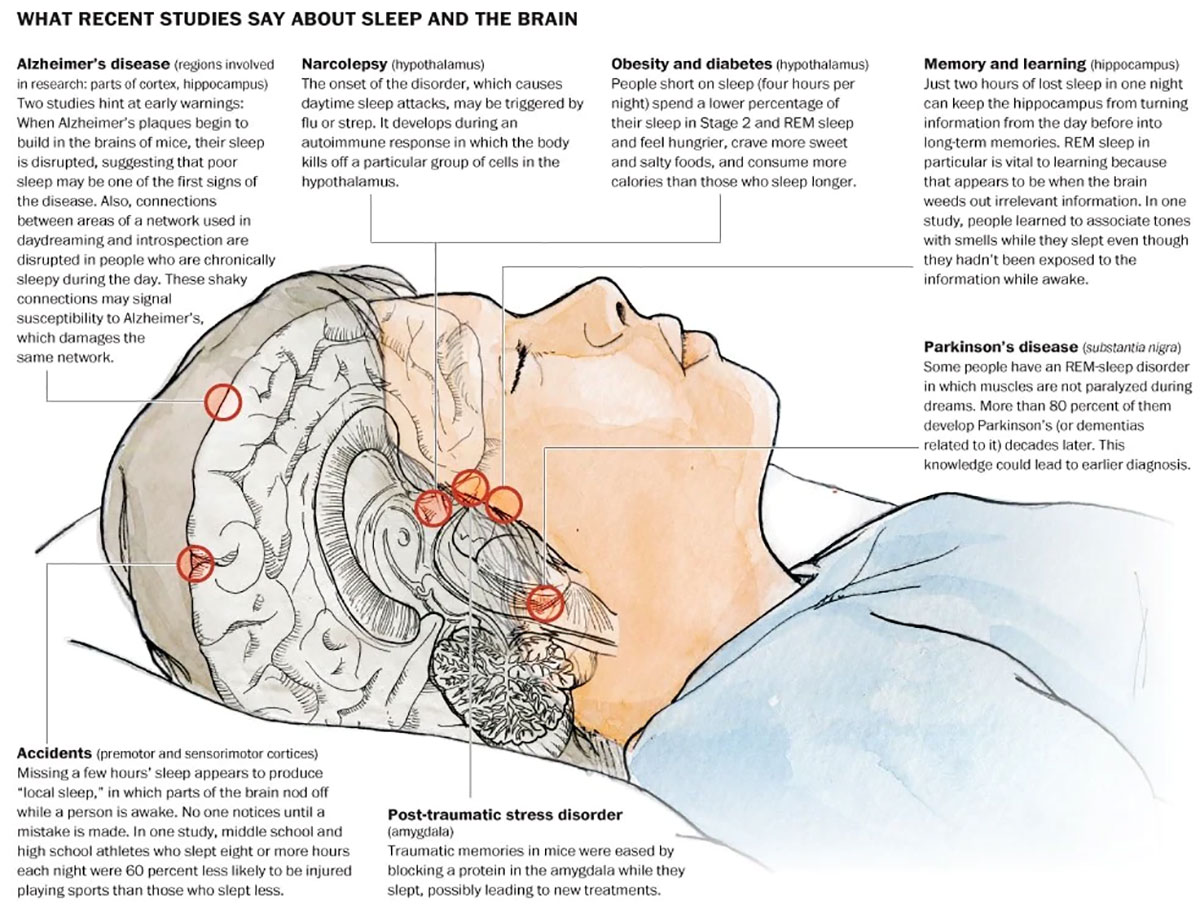On average, adults need 7-9 hours of sleep every night to stay healthy unless you are a short sleeper (or sleepless elite).[8]
As a short sleeper, he/she has an easy time falling asleep and only needs four to five hours of sleep each night to feel well-rested and alert. However, to be an elite sleeper is, for the most part, genetic and scientists estimate they make up only about 1% of the population.
Adults who slept 5 hours or less a night had a 15% greater mortality risk compared with those sleeping 7 hours.
As we know, too little sleep may fuel insulin resistance

While not getting enough sleep is clearly associated with increased health risks, so is getting too much sleep:
Every person is unique. Hours of sleep needed for each is different and varies with age. See above diagram for the recommended sleep hours per your age.
Besides hours of sleep, there are other factors to consider to get a good night sleep, read [1] for some recommendations. With a good night sleep, hopefully, you will wake up feeling energized and refreshed everyday. Stay healthy!

As a short sleeper, he/she has an easy time falling asleep and only needs four to five hours of sleep each night to feel well-rested and alert. However, to be an elite sleeper is, for the most part, genetic and scientists estimate they make up only about 1% of the population.
If Sleep Too Little
Adults who slept 5 hours or less a night had a 15% greater mortality risk compared with those sleeping 7 hours.
As we know, too little sleep may fuel insulin resistance
- Sleep deficiency results in a higher than normal blood sugar level, which may increase your risk for diabetes[2]
- After four nights of sleep deprivation (sleep time was only 4.5 hours per night), study participants' insulin sensitivity was 16 percent lower, while their fat cells' insulin sensitivity was 30 percent lower, and rivaled levels seen in those with diabetes or obesity[3]
- Researchers at the University of Chicago found that losing just 3 to 4 hours of sleep over a period of several days is enough to trigger metabolic changes that are consistent with a prediabetic state.[4]
- Scientists in Japan have found that middle-aged Japanese who got 4 hours of sleep or less had roughly a 50% greater likelihood of dying from a stoke.[9]
- In a recent study of 150,000 Americans, higher stoke rates were found among individuals sleeping 6 hours or less.[10]

If Sleep Too Much
While not getting enough sleep is clearly associated with increased health risks, so is getting too much sleep:
- Those who slept 9 hours had a 42% increase in mortality risk.[5]
- Middle-aged Japanese who slept 10 hours or more had higher risk of dying from a stroke.[9]
- Americans who slept 9 hours or more had higher stroke rate.[10]
Every person is unique. Hours of sleep needed for each is different and varies with age. See above diagram for the recommended sleep hours per your age.
Besides hours of sleep, there are other factors to consider to get a good night sleep, read [1] for some recommendations. With a good night sleep, hopefully, you will wake up feeling energized and refreshed everyday. Stay healthy!

Image via: AHealthBlog
References
- Enjoy Good Night Sleep and Live Longer (Travel and Health)
- Diabetes and the Night Shift Factor
- Impaired Insulin Signaling in Human Adipocytes After Experimental Sleep Restriction: A Randomized, Crossover Study (Annals of Internal Medicine)
- Knutson, K.L. Impact of sleep and sleep loss on glucose homeostasis and appetite regulation. Sleep Medicine Clinics 2007;2(2):187-97
- Growing Number of People Get Too Much Sleep
- HOW MUCH SLEEP DO WE REALLY NEED?
- sleep.org
- Here's why a 'sleepless elite' needs just 4 hours of sleep a night
- Ikehara S, Iso H, Date C, et al; JACC Study Group. Association of sleep duration with mortality from cardiovascular disese and other causes for Japanese men and women: the JACC study. Sleep. 2009;32(3):295-301.
- Fang J, Wheaton AG, Ayala C. Sleep duration and history of stoke among adults from the USA. J. Sleep Res. 2014;23(5):531-7.
